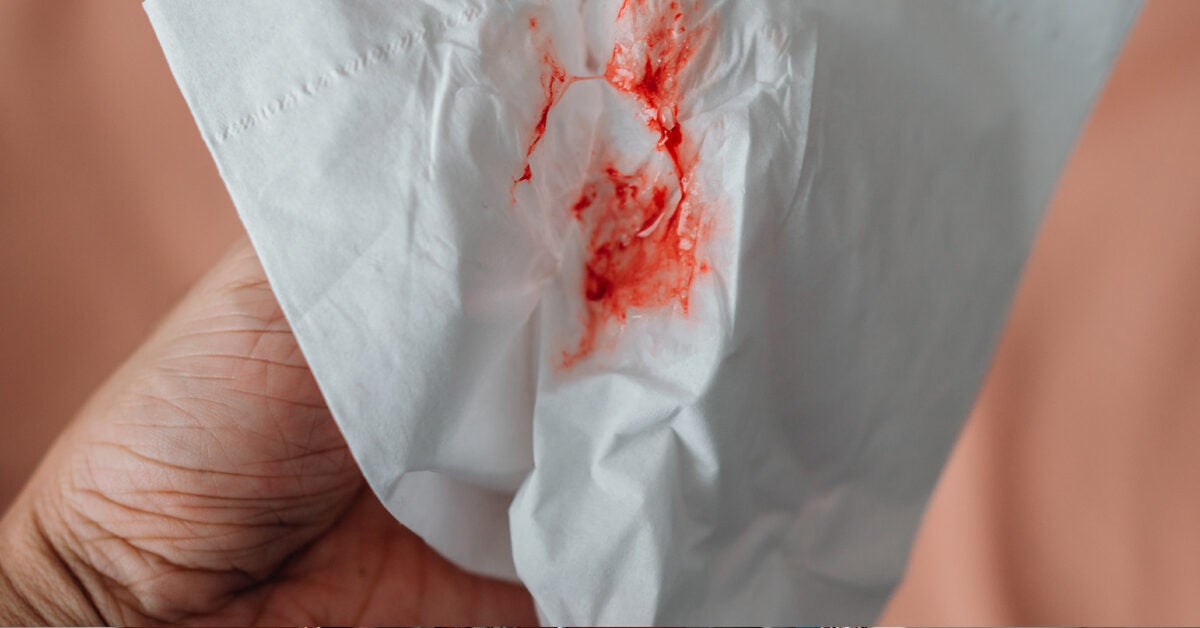


you're swallowing a large amount of blood that makes you vomit.your nosebleed lasts longer than 10 to 15 minutes.American Journal of Neuroradiology, 30(9), 1637-1645 /content/.full. (2015, April 21) nhs.uk/Conditions/Nosebleed/Pages/Causes.aspx Nosebleeds: Definition /symptoms/nosebleeds/basics/definition/sym-20050914 Focus on: Treatment of epistaxis /Clinical-Practice-Management/Focus-On-Treatment-of-Epistaxis/ You can learn more about how we ensure our content is accurate and current by reading our editorial policy. Healthline has strict sourcing guidelines and relies on peer-reviewed studies, academic research institutions, and medical associations. Last medically reviewed on March 28, 2017 If bleeding or abnormal discharge keeps happening over and over, even if you’ve treated it or tried to prevent nosebleeds, see your doctor to find out if any objects or growths, such as tumors, are causing your nosebleeds to reoccur. In some cases, your doctor may want to perform surgery to treat a persistent nosebleed, especially if it was caused by an injury or head trauma. embolization, in which your doctor plugs up blood vessels to stop bleeding.laser beam therapy that seals off blood vessels.medications that are applied to the inside of your nose.chemicals or electric tools, such as probes, that can seal off blood vessels.hot water irrigation tools to wash out your nasal cavity and soothe irritation.inflatable balloons that deliver saline into your nasal cavity and stop bleeding.Your doctor may be able to treat your nosebleed with medications or other tools, including: But if your nosebleed lasts longer than 20 to 30 minutes, see your doctor to find out what’s causing it. disorders that affect your body’s ability to form blood clots or that affect blood vessels, such as hemophilia or high blood pressure.allergies or the common cold, both of which can cause your nose tissue to become inflamed or make your nasal blood vessels widen and bleed more easily.a deviated septum, which means that one of your nasal airways is smaller than the other and more likely to bleed.Some medical conditions can also cause nosebleeds, including: Posterior nosebleeds can result from taking inflammation medications or blood thinners. getting an injury that fractures or breaks parts of your nose or skull.inhaling chemicals in the workplace, such as gasoline or ammonia.inhaling tobacco smoke, including secondhand smoke.
#Nosebleed and coughing up blood skin#
the skin in your nose becoming more delicate and susceptible to bleeding due to dry, warm weather.blowing your nose too hard or too often.Posterior nosebleeds can often have external or environmental causes, including: These usually aren’t serious, and they tend to stop bleeding and heal on their own quickly. In this case, blood usually comes out of the front of your nose.

When the tissue in the front of your nose or the septum, which divides your two nostrils, is damaged and bleeds, it’s called an anterior nosebleed. They’re most common when the blood vessels in the tissue of the inside of your nose, called the mucosa, are damaged and start bleeding, often from scratching, from an object inside your nose rubbing against the tissue, or from an injury to your nose. Posterior nosebleeds are also more common in children between 2 and 10 years old and adults between 50 and 80 years old.Ī nosebleed, also known as epistaxis, can happen for a number of reasons. You likely have a posterior nosebleed if blood comes out of your nose for more than 20 minutes or the nosebleed happens after you’ve gotten a head, nose, or face injury. It may be caused by injuries to your nose, but may also be caused by high blood pressure or other conditions. Blood may come out of your nostrils, but blood can also leak into your throat. When the tissue at the back of your nose in your nasal cavity is damaged and bleeds, it’s called a posterior nosebleed.


 0 kommentar(er)
0 kommentar(er)
